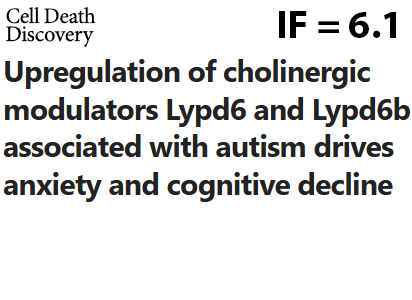
Upregulation of cholinergic modulators Lypd6 and Lypd6b associated with autism drives anxiety and cognitive decline
A duplication of the chromosomal region 2q23.q23.2, carrying LYPD6 and LYPD6B genes, leads to intellectual disability and autistic features. Researchers from the Neurotransmitter and Neuroreceptor Bioengineering Laboratory, Shemyakin-Ovchnnikov Institute of Bioorganic Chemistry of RAS together with colleagues from Lomonosov State University and Institute for Biomedical Problems of RAS, used a mouse model to study the consequences of overexpression of the Lypd6 and Lypd6b proteins in the brain, which is typical for patients with autism and other neuropsychiatric disorders. A two-week intracerebral infusion of recombinant Lypd6 and Lypd6b analogs impaired memory, increased acute anxiety, reduced dendritic spine density in the hippocampus and amygdala, and led to decreased expression of endogenous Lypd6, Lypd6b, and the α7 nicotinic receptor in the hippocampus. Moreover, in the work I shown that Lypd6b, Like Lypd6, is a negative allosteric modulator of nicotinic receptors. The work is supported by the Russian Science Foundation and published in the journal Cell Death Discovery (IF 6.1).
november 18, 2024

